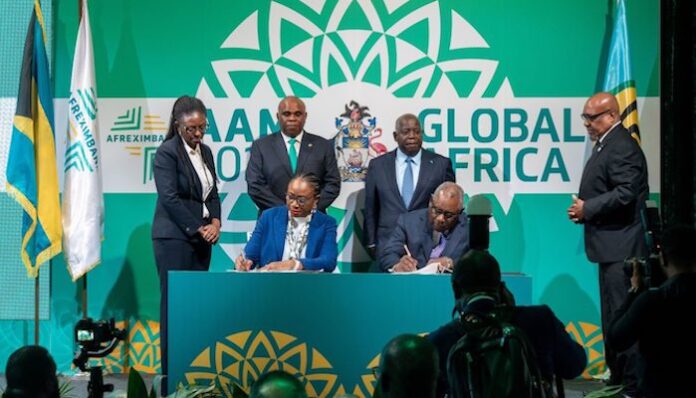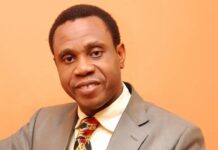Though BlossomNigeria acknowledges the step the Federal Government has taken, signing a Memorandum of Understanding (MoU), with Afreximbank to establish a $3 billion Industrialisation financing facility for an industrial park and light manufacturing in the country, some of the pending questions remain unanswered. Will the recently signed Memorandum of Understanding with Afreximbank and the just obtained World Bank $2.25 billion loan boost the industrialisation process in the country?
It is on record that the Minister of Industry, Trade and Investment, Dr. Doris Udoka-Anite, on Friday, June 14, signed the Memorandum of Understanding (MoU) document, on behalf of the country, at the Afreximbank Annual Meetings (AAM) 2024, in Nassau, The Bahamas.
The deal is expected to support the development of an automotive sector and the Compressed Natural Gas (CNG) value chain. It is also expected to create special economic and agro-processing zones across the country and create an estimated 20,000 jobs. These areas are expected better to enable the automotive and transport sector in the country, while at the same aiding agro-processing.
This laudable agreement came shortly after the World Bank approved a total sum of N2.25 billion for Nigeria, to enable the Federal Government to accelerate its non-oil resource mobilisation, and support poor Nigerians. In two separate financing interventions, the bank had announced $1.5 billion for the country’s Reforms for Economic Stabilisation to Enable Transformation (RESET), Development Policy Financing Programme (DPF), and $750 million for the Accelerating Resource Mobilisation Reforms (ARMOR) and Programme-for-Results (PforR).
Wale Edun, Nigeria’s Minister of Finance and Coordinating Minister of the Economy, earlier announced the approval of two major financial support packages by the World Bank, after disclosing the country’s intentions to get the loan at from the International Monetary Fund and the World Bank in April.
Though Ousmane Diagana, the World Bank Vice President for Western and Central Africa, said in a statement released by the Ministry of Finance that ‘It further supports Nigeria’s effort to raise non-oil revenues and safeguard oil revenues to promote fiscal sustainability and provide sufficient resources to deliver quality public services’, several Nigerians are of the opinion that the facilities will throw the country into more lack after considering the fact that it might lead to further devaluation of the country’s currency, in addition to other economic side affects.
With these challenges in mind, it is suggested that major critical steps to restore macro-economic stability, boost revenues, and create the conditions to ignite growth and poverty reduction, should include deliberate measures at unifying the multiple official exchange rates and fostering a market determined official rate. The Central Bank of Nigeria (CBN), should also focus more on its core mandate of price stability, as it tightens monetary measures, to increase interest rates, appropriate to reduce inflation.
Afreximbank has also announced that the recently signed MOU with Nigeria, will cut across the cotton belt and also create a lot of jobs in Nigeria’s core strength in terms of cotton and textile production, which used to be the pride of the country in the 80s and 90s. They trust that the partnership will help the present administration to drive economic diversification.
If what is said is done, the Afreximbank and World Bank loan should aid the industrialisation process as has been outlined. The major challenge then lies with poor implementation processes, which can be a snare in the economy if not prevented and curtailed. This is why we call for better monitoring systems that can be trusted for increased output and more effective deliveries across all sectors of industrial production and manufacturing.











Very interesting points you have mentioned, thanks for posting.